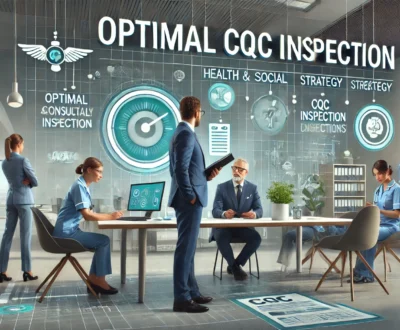CQC published this month a paper – Right Support, Right Care and Right Culture. It details how CQC will regulate providers supporting autistic people and people with learning disability. It supersedes the pervious document Registering the right support. One of the major differences to this is the guidance is statutory guidance and applies to current and new services.
The Key aspects of the requirements:
- There is a clear need for the service, and it has been agreed by commissioners.
- The size, setting and design of the service meet people’s expectations and align with current best practice.
- People have access to the community.
- The model of care, policies and procedures are in line with current best practice.
CQC have made it clear that Human Rights and people’s needs, and preferences are at the heart of the registration decision process.
One of the biggest changes is that local authorities will need to support the need for a new service. When registering, commissioners will need to support the application in writing. The service will also need to demonstrate that the service is for local people to meet a local need.
When considering the size and suitability of service, the regulator will want to see that design conforms with NICE guidance and within the report they stipulate which guidance applies to each category of service user. Services should not compromise the quality of care, people’s safety, or their human rights. The care provided must be person centred and in line with best practice. The building should not be frightening or institutional in nature.
One change which may prove a challenge for the existing provider and requires considerable thought for a potential provider are the clear lines of separation between care functions and accommodation.
Traditionally, operators of supported living projects were able to provide accommodation via a housing arm of the business and the elements of care through a care operation registered with CQC. This meant in practice that providers of accommodation managed the housing, and their own care business managed the provision of care.
Now the separation needs to be much clearer; the residents in a supported living project need to be able to choose the care provider. This means that economies of scale will be lost by providers, and when considering the company structure clear separation of boards must be considered.
Existing providers may face difficult decisions as to what their operation will look like in the future and how they will achieve true separation.
For the new provider, the provision of supported living is now extremely complex and finding their way through can be a minefield as it will no longer be a case of following another company’s model.
We have seen an increase in potential new entrants seeking assistance with registration of supported housing projects. We find that potential social care providers see the opening of a supported housing project as a way of getting their foot on the first rung of the ladder. The accommodation is residential in nature, making the first purchase an attractive one.
The team at Swift Services Management, would advise getting support from the outset of the project. Ensure that there is a full understanding of what is required. Conduct an appraisal of the proposed location. Consider how the companies are going to be structured.
We would also suggest early discussions with local authorities, before making any decision or commencing the registration process.
Being able to demonstrate a full feasibility study will assist in the registration process. Include clear objectives about the proposed company and what will that look like. Probably the biggest thing to decide is: Are you a social landlord or a care provider? If the answer is both, how are you going to achieve separation? The purpose of separation is to give residents real choice about their care and who they purchase it from.
If you are looking to move into the social care sector, we would recommend that you take advice, from a specialist solicitor or a care consultant. To find out how Swift Management Services can help visit: https://swiftmanagement.org.uk/regulatory-support/



